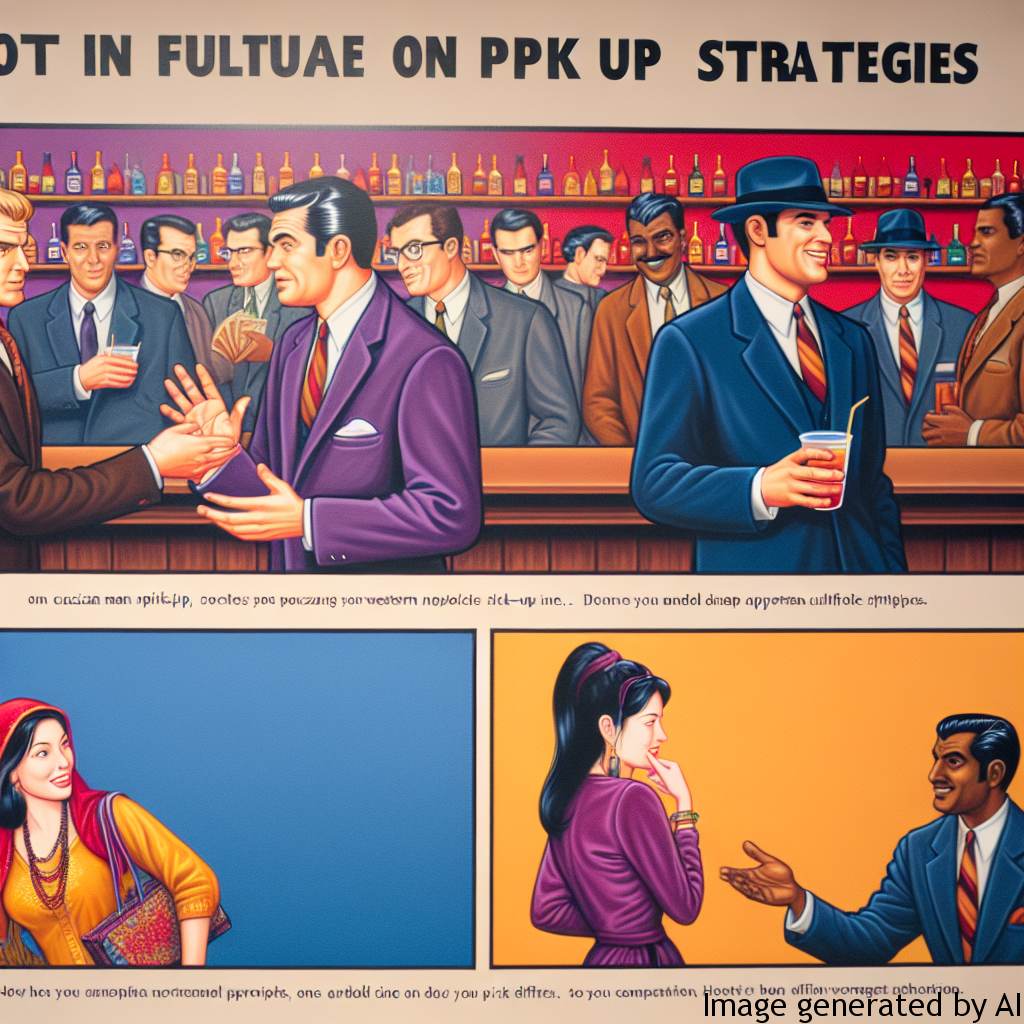Introduction
The influence of culture on individual behaviors and attitudes cannot be overstated. It dictates norms, shapes beliefs, and sets expectations, especially about gender roles and interactions. This article explores one niche of behavioral dynamics – pickup strategies–, unraveling how cultural diversities and gender expectations contribute to differences in these strategies. The goal is to shed light on how these differences impact men’s psychological health and provide constructive suggestions to improve their well-being.
Description of Gender Expectations and Their Impact on Men’s Psychological Health
Roots of Gender Expectations
Gender expectations are a set of societal norms dictating the behaviors considered appropriate for men and women. They stem from long-established cultural traditions and stereotypes. Men are popularly expected to be dominant, assertive, and emotionally resilient, a stereotype that often forms the basis for pickup strategies.
Impact on Mental Health
Gender expectations can directly impact men’s psychological health. The pressure to conform to these expectations can lead to stress, anxiety, feelings of inadequacy, and depression. Men may feel the societal pressure to be assertive in initiating relationships, which can create an unhealthy performance pressure, leading to emotional distress and undermining self-esteem.
Examples of How Gender Roles Influence Men’s Lives
These societal expectations and gender roles show up in men’s lives in various ways. In the context of romantic and sexual encounters, men frequently bear the brunt of responsibility for initiating contact or advancing a relationship. There is also the expectation that they should be adept at reading non-verbal cues and perceiving mutual interest. These practices can lead to fear of rejection, anxiety, and reduced self-worth. Longer-term impacts can include a shying away from emotional intimacy and a struggle to maintain meaningful relationships.
Tips to Improve Psychological Health When Navigating Gender Roles
For healthier navigation of gender roles and expectations, men should firstly challenge and critically assess these cultures and stereotypes. Self-awareness and acceptance are also valuable, recognizing that feelings of vulnerability and fear are universal human experiences, not signs of weakness. Engaging in open and honest communication, seeking professional help when needed, and fostering supportive relationships are also excellent strategies that can bolster men’s psychological health.
Conclusion
Cultural differences and gender expectations undeniably influence pickup strategies, significantly impacting men’s psychological health. While societal norms have been slowly changing, nevertheless, the onus remains on individuals to challenge these norms and take proactive steps in managing their psychological well-being. It’s essential to understand that it’s not about completely rejecting gender roles or behavioral norms, but rather about finding balance and learning healthier ways of expressing masculinity.

